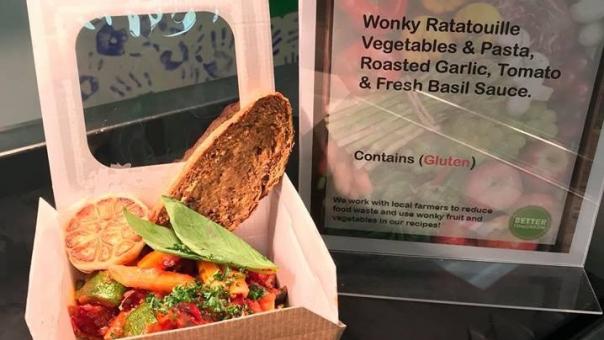
Maria Outters, the group’s senior vice president for corporate responsibility, said Sodexo was the first food services company with a carbon emission reduction objective in line with the Paris Agreement to limit global temperature rise to 1.5°C above pre- industrial levels – a 34% reduction by 2025 compared to 2017.
The company was also accelerating its actions to make ‘a positive impact’ on biodiversity preservation and climate change in conjunction with ‘rise with Sodexo’, its global programme to support operations post-Covid-19.
She said: “Underlying economic and social challenges ahead will magnify the need for economic models built on sustainable consumption patterns and solutions preserving natural resources.
"The Covid-19 crisis is a wake-up call to inject a much-needed collective purpose in the economic recovery and prevent an aggravated health, social and ecological crisis. Sodexo is committed to answer that call.”
Ana Svab, CR manager at Sodexo UK & Ireland concludes:
“At Sodexo our sustainability roadmap is fully embedded into the way we do business. We invest time, money and effort into ensuring our teams are engaged and have the knowledge and tools to work with our clients, consumers and suppliers to help reduce the impact our operations have on the environment.”
Sodexo’s commitment to a sustainable recovery supports the comprehensive range of essential and innovative services Sodexo developed under the previously announced ‘rise with Sodexo’.
The five commitments are:
1. Continue the deployment of Sodexo’s food waste reduction programme as sites reopen
Sodexo will continue the deployment of its data-driven food waste reduction programme, WasteWatch powered by Leanpath. As client sites reopen around the world, Sodexo will continue its actions towards its goal to reduce food waste by 50% on active sites equipped with the programme.
Prior to Covid-19, globally, Sodexo had 1,500 sites equipped or actively engaged in the deployment process of the programme. Since the launch of the programme, Sodexo has been able to save the equivalent 4.8 million meals. This represents a reduction of 15,200 metric tons of carbon emissions.
2. Continue efforts to reduce single-use items and plastic waste
The Covid-19 pandemic has led to a resurgence of single-use plastic. Despite this challenge, Sodexo continues to support its clients and consumers with actions to reduce single-use plastic.
In the UK & Ireland prior to Covid-19 Sodexo had already put in a number of steps to combat single-use plastic including the removal of plastic straws and stirrers; polystyrene food packaging and single use plastic bags. As businesses reopen Sodexo’s single use hierarchy approach to plastics remains the same:
Prevent: Prevention comes first. It’s Sodexo’s favoured sustainable option and it has already cut many single-use plastics from its operations. Other disposable items such as napkins and paper straws are available by request only.
Reuse: Reusables are the next best choice and come in two forms: customer and Sodexo-owned items. Customer-owned items including coffee cups and food containers are currently restricted, due to possible transmission of Covid-19.
Recycle: There will be an increase use of disposable packaging to help prevent the spread of Covid-19. Environmentally friendly options such as fibre-based packaging or plant-based materials will be considered where possible.
3. Promote sustainable eating and low carbon meals as part of ‘rise with Sodexo’
Sodexo has increased its menu mix target for plant-based meals to more than 30% globally to address the growing consumer demand for sustainable food and preference for simple, clean, local and healthy ingredients.
For example, recipes for plant-based meals which include ingredients encouraging biodiversity from the Future 50 foods identified by WWF and Knorr, are now available to 6,500 Sodexo sites in 13 countries.
4. Promote sustainable and responsible sourcing
In 2020, Sodexo is celebrating the 10th anniversary of its partnership with WWF to continuously improve operations and sourcing practices and reduce its carbon footprint, including from the production of the food, products and services sourced by Sodexo. Key areas of collaboration include responsible sourcing regarding land commodities, seafood and reduction of greenhouse gas emissions.
Sodexo Supply Management teams are adopting smarter supply chain practices including shorter circuits, more local products, and more seasonal offers. It is also giving small companies preferred access to its supply chain through its Partner Inclusion Programme which is aimed at helping small and medium enterprises meet its standards.
5. Enhanced environmental training programme for employees
In May 2020 Sodexo updated and launched a new version of its ‘Sodexo and the environment’ global training programme to help its employees work with its clients and consumers to reduce its impact on the environment. This is one of the many initiatives to ensure Sodexo delivers its corporate responsibility objective to have 100% of its employees trained on sustainable practices by 2025.